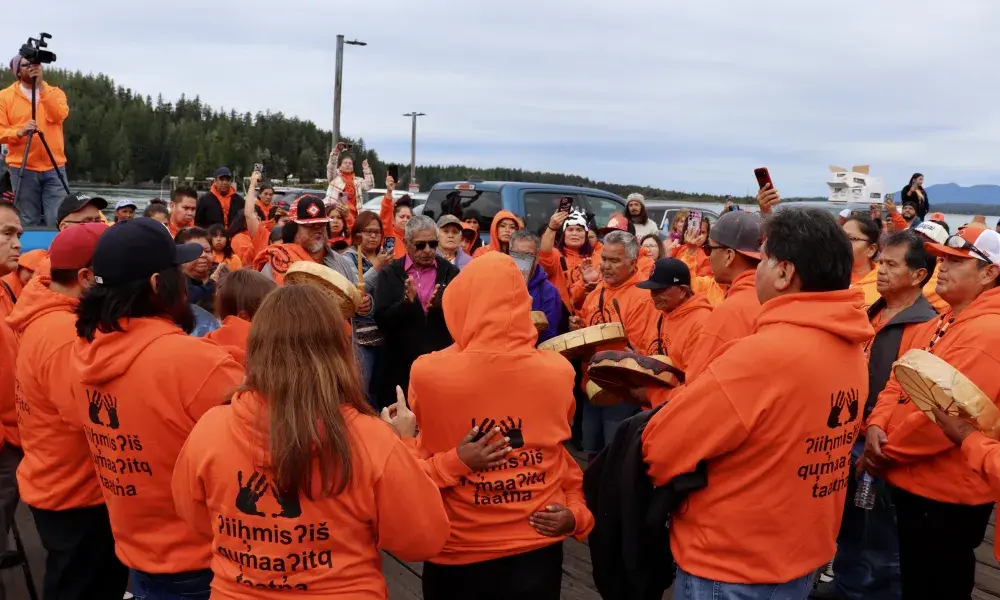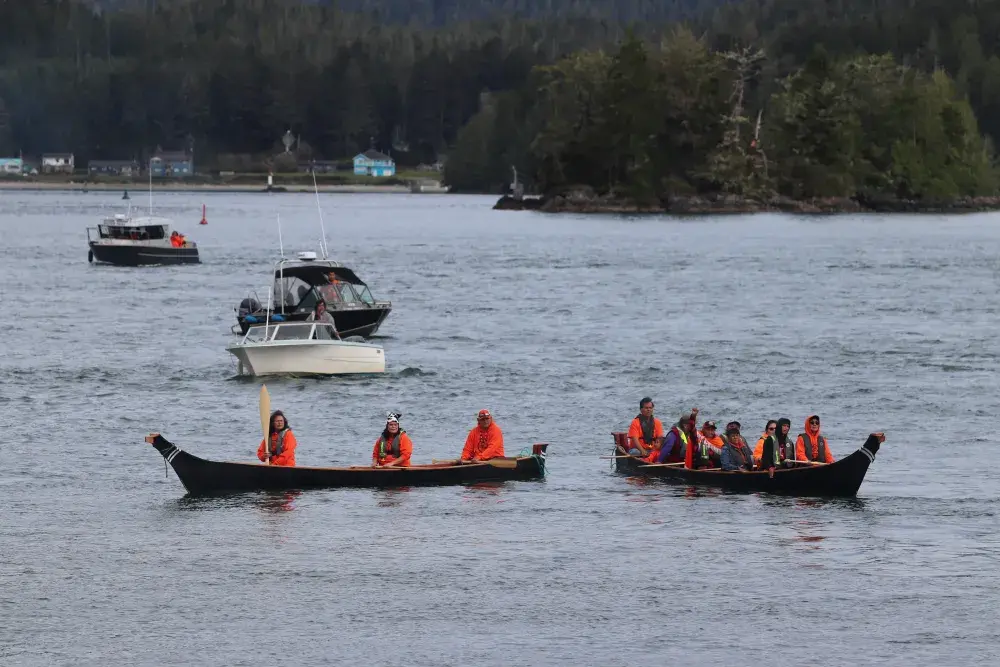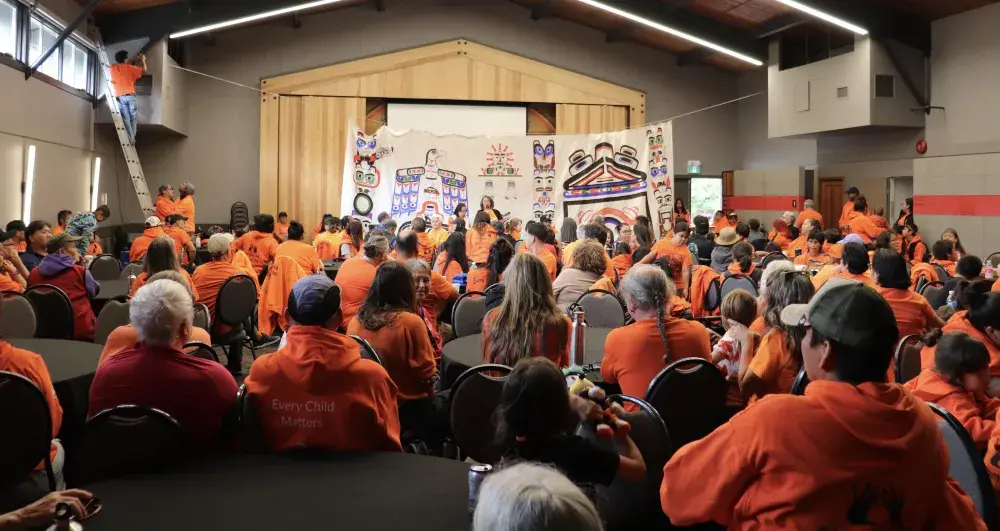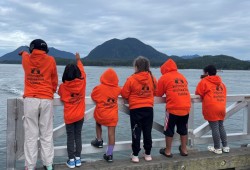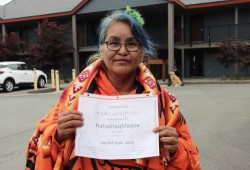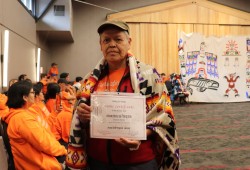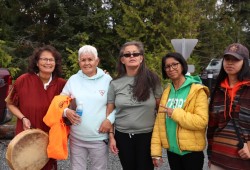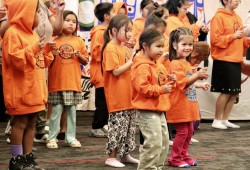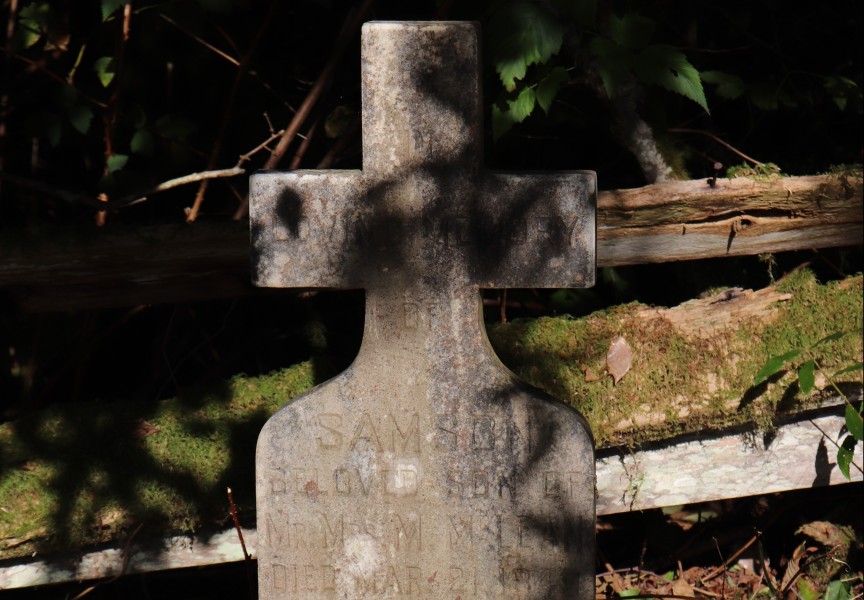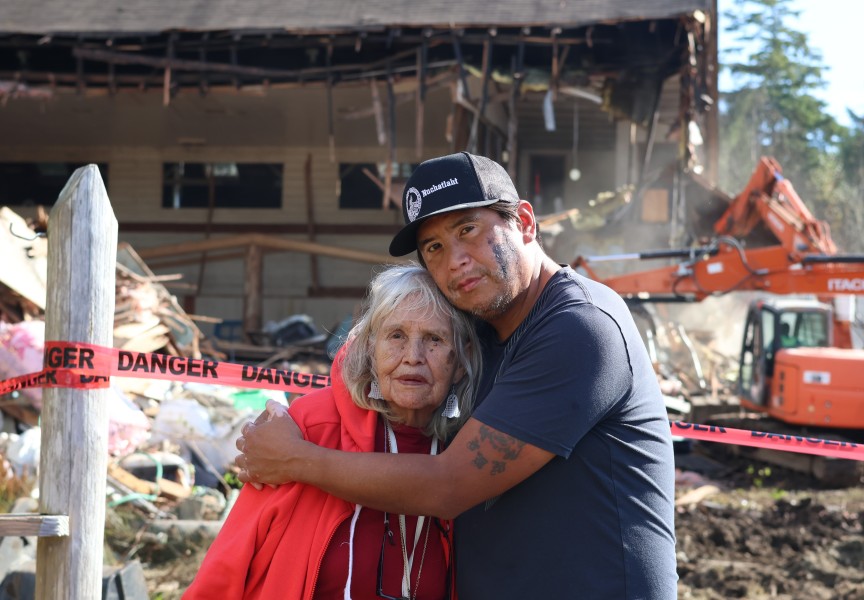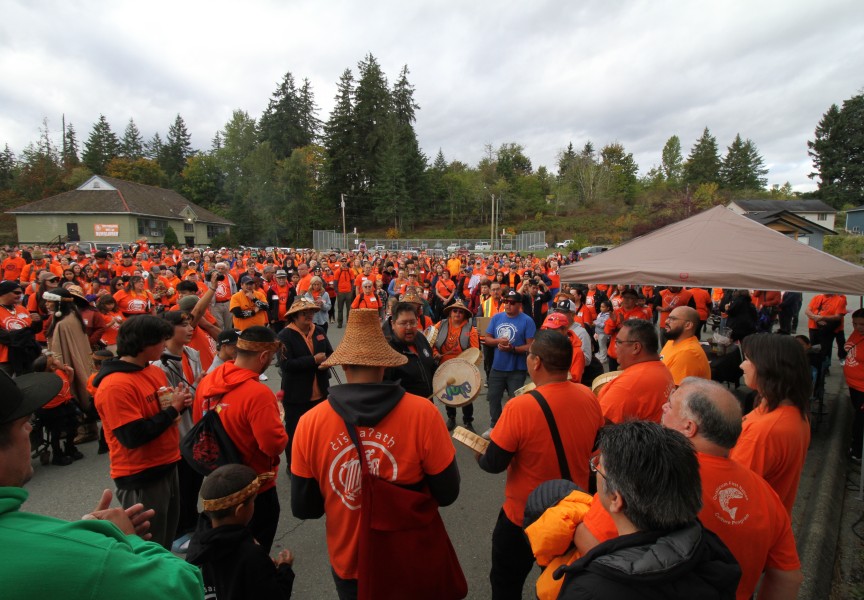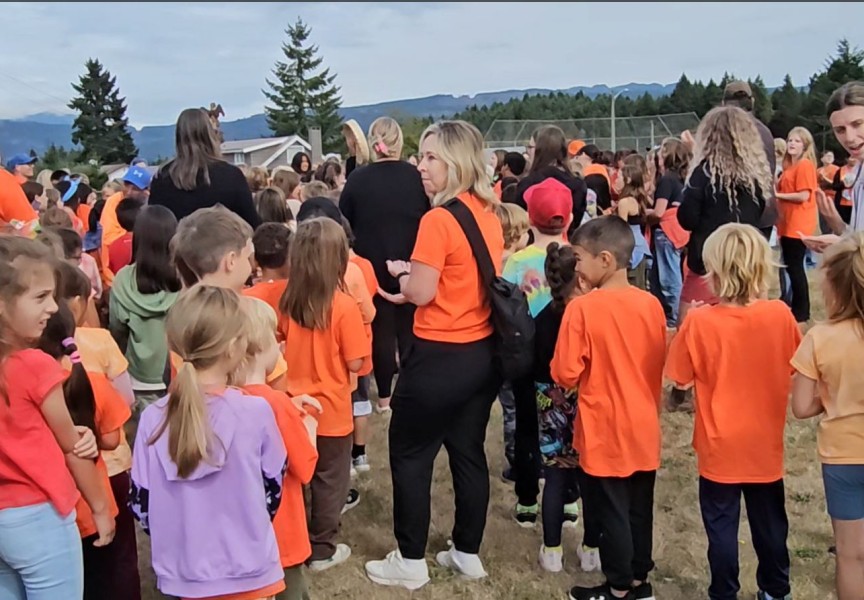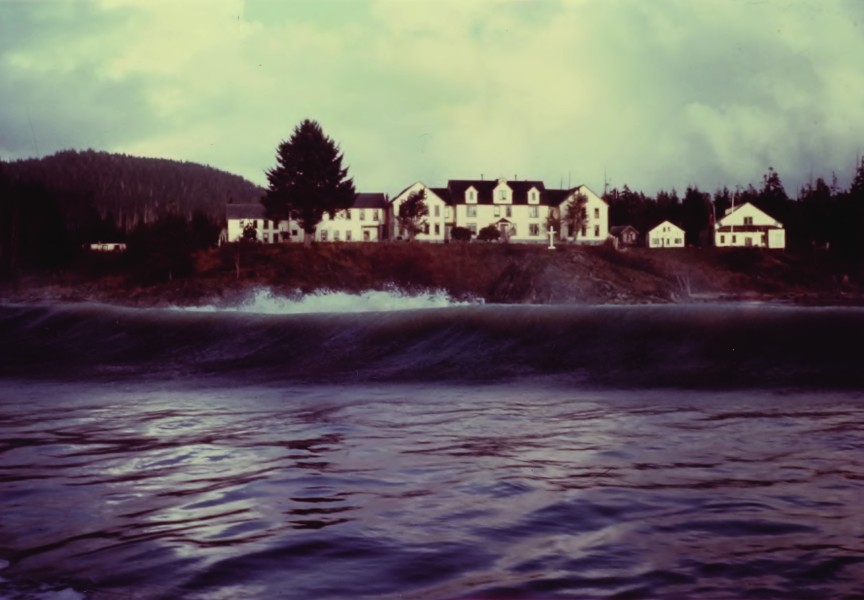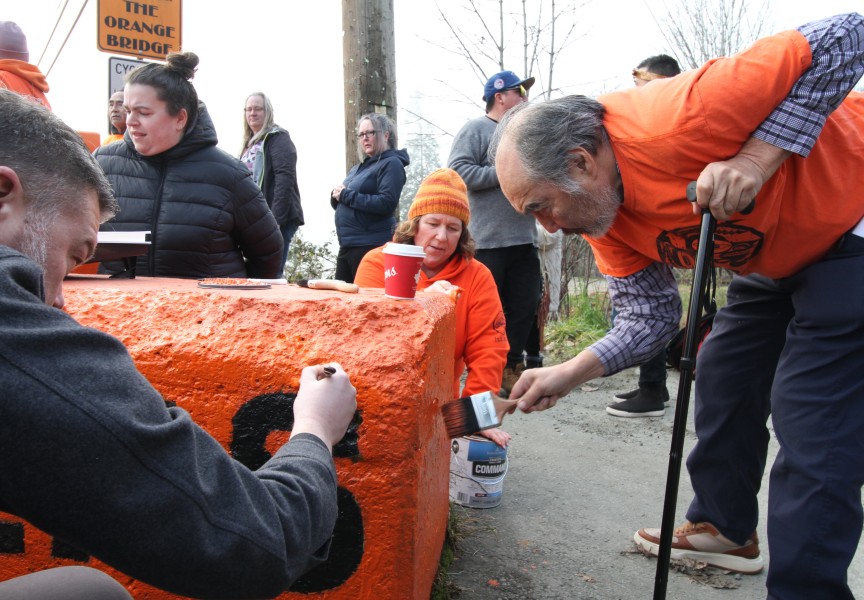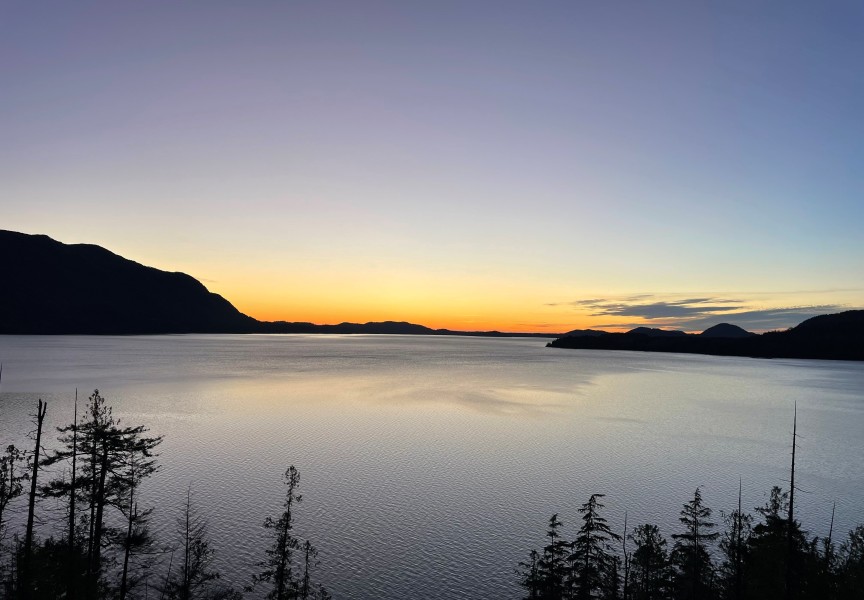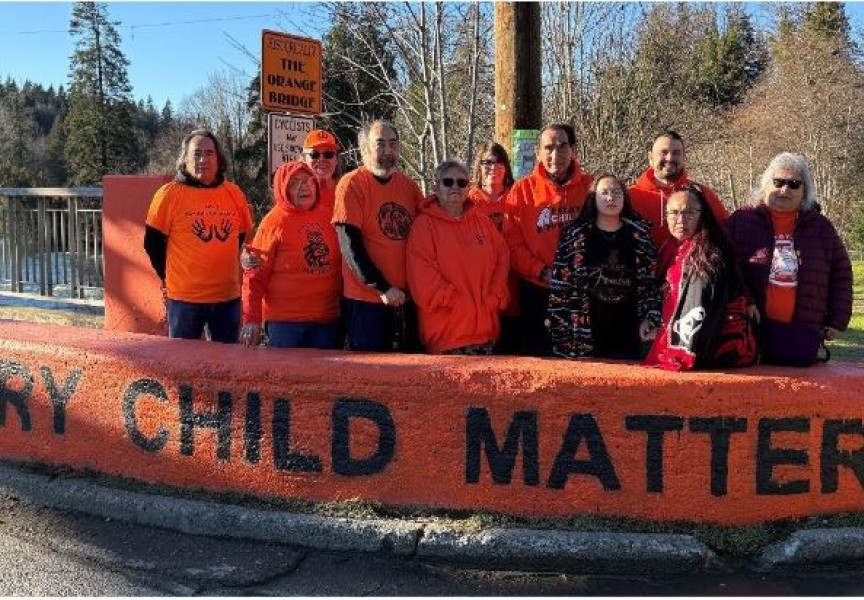Christie Residential School warrior Rose Tom says she felt like a queen on Sept. 30, Canada’s fourth National Day for Truth and Reconciliation.
Tom journeyed on a boat from the rocky shores of Meares Island and the site of Kakawis/ old Christie Indian Residential School (IRS) with a pod of fellow warriors, some paddling a dugout canoe and others on support boats, to Tofino’s First Street Dock.
It was an emotional morning, triggering memories of a time most don’t want to talk or think about, but as the residential school warriors cruised into the Tofino inlet, they were greeted by a sea of orange supporters and family – four generations strong.
Tla-o-qui-aht Chief Councillor Elmer Frank explained that the paddle from Kakawis to Tofino was a pathway for the warriors to heal from the trauma of residential school.
“A lot of hurt happened (at Christie) to our people. One of the ways to start healing is to start from where we were hurt. To paddle together, to uphold each other, to continue that strength that we have as Tla-o-qui-aht and First Nations People. To be able to overcome that hurt that we endured,” said Frank.
“Today we are here to celebrate; to celebrate our survival, to celebrate our healing journey, to celebrate together and collectively,” he said.
Tom was forced to attend Christie when she was five or six years old for three years. She said they separated the boys from the girls, so she didn’t even know her brothers had also attended the “school” at the same time she did.
On the 3.6-kilometre walk from Tofino to Tin Wis and the site of the newer Christie location, Tom didn’t say much about residential school other than she did not like it. Instead, she talked about her six kids, her 18 grandkids, her upcoming 78th birthday on Nov. 11 and the fact that she is 40 years sober.
“I wish the drugs and alcohol would just disappear,” said Tom, who lives in the Tla-o-qui-aht community of Opitsaht across from the inlet from Tofino.
Following the walk, Tla-o-qui-aht Councillor Autlieyu (Francis Frank) welcomed the standing-room only gathering to the Orange Shirt Day community lunch that featured dishes prepared by Tofino’s culinary champions.
“Nuu-chah-nulth are carrying heavy hearts for lost loved ones. Today is about reclaiming our spirits. It’s about helping our survivors reclaim their identity,” said Autlieyu.
“The goal of the residential school was to take the Indian out the child and also to remove us from practicing and living who we are, speaking our language and singing our song and dance,” he continued. “That’s what we are going to do today. They tried, but they failed. We are still here and we are going to be here for another 100 plus years.”
After lunch, the tables were stored away to open the space for dance, song and a special naming ceremony.
Honouring the residential school warriors by giving them quuʔas names
Tla-o-qui-aht Ha'wiih worked with their language team and the families of the IRS warriors to give them each a unique quuʔas (Indigenous) name.
“A lot of survivors expressed that their identity was taken away from them,” said Chief Frank. “Our names are English because of the colonial system that was created for us.”
Like a high school graduation, the IRS warriors were called up to the front one by one, they were blanketed by a Tla-o-qui-aht youth and presented a certificate with their new Indigenous name. The crowd recited the names in unison and applauded as the warrior returned to their seat.
“Learn to sing a song. To dance. Develop your cultural self-identity. Learn your language. Sit with your elders and healers. Let’s heal together,” said language digital archivist Deb Masso during the naming ceremony.

